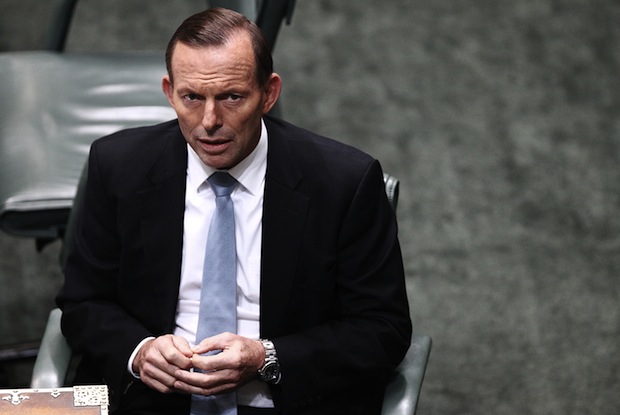In the frenzied aftermath of his infamous 1968 ‘Rivers of Blood’ speech, Conservative MP Enoch Powell was asked by an interviewer to comment on ‘the patience of the British people’ towards uncapped immigration. He sighed, and muttered wearily: ‘Well, there are limits to everything.’
And so it would seem. Last week that limit finally reached breaking point, and Britain — along with many countries throughout the European Union — underwent a major convulsion, as political parties long deemed fringe dwellers and extremists grabbed seats and power. In Britain, for the first time in a century, national elections were won by someone other than the two major parties.
This seismic shifting of political tectonic plates — a new continental drift — unleashed, not surprisingly, an avalanche of apocalyptic geological metaphors; ‘a political earthquake’ according to France’s Prime Minister Manuel Valls, whilst former Presidential main squeeze Ségolène Royale spoke of ‘a shock on a global scale’.
In Britain, Labour MP Kevin Barron painted the picture of Tory constituencies and Labour heartlands alike being ‘swept away in a tsunami’. Tremors were also felt as far afield as Greece, Austria and Denmark, with some rather unpleasant parties from both the extreme Right and, in Greece, the extreme Left rattling the crockery. Anti-ism was everywhere.‘Anti-EU’, ‘anti-Islam’, ‘anti-euro’, ‘anti-immigration’ and even ‘anti-austerity’ were the catch-cries of the day.
What is clear is that at the heart of the success of these varying parties lies a deep frustration with politics-as-usual fuelled by a bitter sense of powerlessness.
The euro-grievances are obviously different in different parts of the continent, and it is deeply disturbing to see glimpses of Nazi or fascist thinking taking advantage of the general malaise, but arguably what links them all is dissatisfaction with the way in which hitherto sovereign nations have seemingly abandoned the power (and the determination) to control their own destinies. At fault lies a long and sad history of governments abrogating their responsibilities in the face of ideologically driven political correctness by literally throwing open their borders to two insidious forces — unchecked immigration and the mandarins of the European Union.
In 1968 Powell talked of a ‘deep foreboding’ when he looked ahead, going so far as to hint at rivers foaming with blood courtesy of open borders, but in fact nearly 50 years later it is the rivers of bureaucracy and euro-socialism that have overwhelmed the long-suffering Brits. To many, the European Union has failed to deliver any tangible benefits, whilst imposing the python’s squeeze of legal and bureaucratic intransigence with a system driven from Brussels that fails to satisfy voters needs and hopes at a local level. Under weak, politically correct, ‘compassionate’ leaders from Blair to Cameron, from Sarkozy to Hollande, Europe’s traditional political parties have wantonly failed to address discontent with immigration and the EU.
‘Those whom the gods wish to destroy they first make mad,’ said Powell.
The stifling bureaucratic socialism behind much of the EU’s nanny-state agenda, from mafia-backed windfarms to arresting people for tweeting, is surely behind Europe’s decline as an intellectual and economic powerhouse. Political correctness, the arrogance and folly of bureaucracy, and a patronising paternalism towards individual aspirations eat away at the once freedom-loving European soul. In the UK, the Orwellian nightmare of being watched and monitored wherever you go (police cars with mounted, swivelling CCTVs prowl even the most fashionable locales) is unavoidable. Freedom of speech struggles daily against the preening pontifications of the elites. Islam reaches its tentacles deep into the classroom. The cultural as well as physical identity of many working-class neighbourhoods has been altered beyond recognition. Those who dare to raise their voices against the advantages they perceive being delivered to different cultures or protected interest groups swiftly find themselves on the wrong side of the law. It is against this background that Ukip has gone from strength to strength.
So what lessons for Australia?
First, there is nothing whatsoever wrong with multiculturalism or immigration, when done well. It is one of Australia’s proudest achievements, and undeniably the bedrock of our success as a nation. Europe’s problems do not stem from immigration: they stem from an inability and reluctance to not only manage but to even acknowledge the problems of uncontrolled immigration. Open borders are a disaster. Not because of ‘racism’, nor ‘fear of unemployment’, nor ‘lack of compassion’ nor any of the other bogeymen the Left toss around. But because of the sense of powerlessness that such a lack of control creates. Invariably, the anti-unchecked-immigration groundswell will have dramatic and unpleasant repercussions.
Second, beware political correctness and the nanny-state. Europe’s love of anti-hate, anti-racist, anti-this-that-or-whatever-causes-even-the-slightest-offence laws simply do not work. Indeed, the evidence from these latest European elections would suggest that the opposite is true: such paternalistic regulations only fuel the anger that drives people into the arms of fringe protest movements.
Australia sits at a crossroads. We either head off merrily down the euro-path to bigger and bigger government and bureaucracy saddled by bigger and bigger debts and deficit to be shunted onto our children with ever growing taxes and fewer jobs whilst offering welfare to whoever feels like it and opening our borders to whomsoever feels like strolling on in. Or, alternatively, we focus on decentralising power to return decision-making to local communities, decreasing the public service, reining in spending and reducing taxes whilst offering welfare to only the neediest and slamming shut our borders so that we get to choose who comes in and in what numbers.
Tony Abbott was elected to unequivocally pursue the second path. Unlike the conservative parties throughout Europe, he is uniquely positioned to avoid the socialist-lite path that clearly leads to frustrated extremism. By stopping the boats, controlling our borders, getting rid of debt, ending endless entitlements, skewering legislated political correctness and returning us back to a surplus, Abbott will prevent us catching the nasty euro-disease of right-wing extremism further down the track. Or we could put our future in the hands of Bill Shorten, Tanya Plibersek, Tony Burke, Sarah Hanson-Young…
Got something to add? Join the discussion and comment below.
Get 10 issues for just $10
Subscribe to The Spectator Australia today for the next 10 magazine issues, plus full online access, for just $10.
You might disagree with half of it, but you’ll enjoy reading all of it. Try your first month for free, then just $2 a week for the remainder of your first year.














Comments
Don't miss out
Join the conversation with other Spectator Australia readers. Subscribe to leave a comment.
SUBSCRIBEAlready a subscriber? Log in